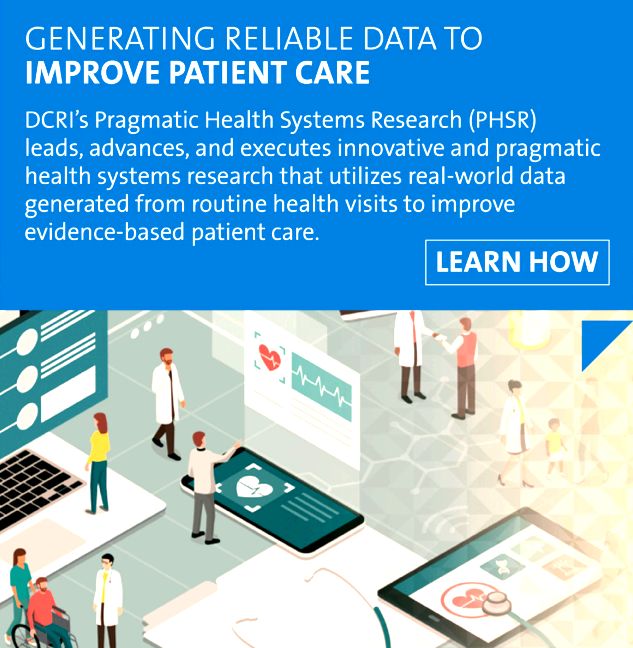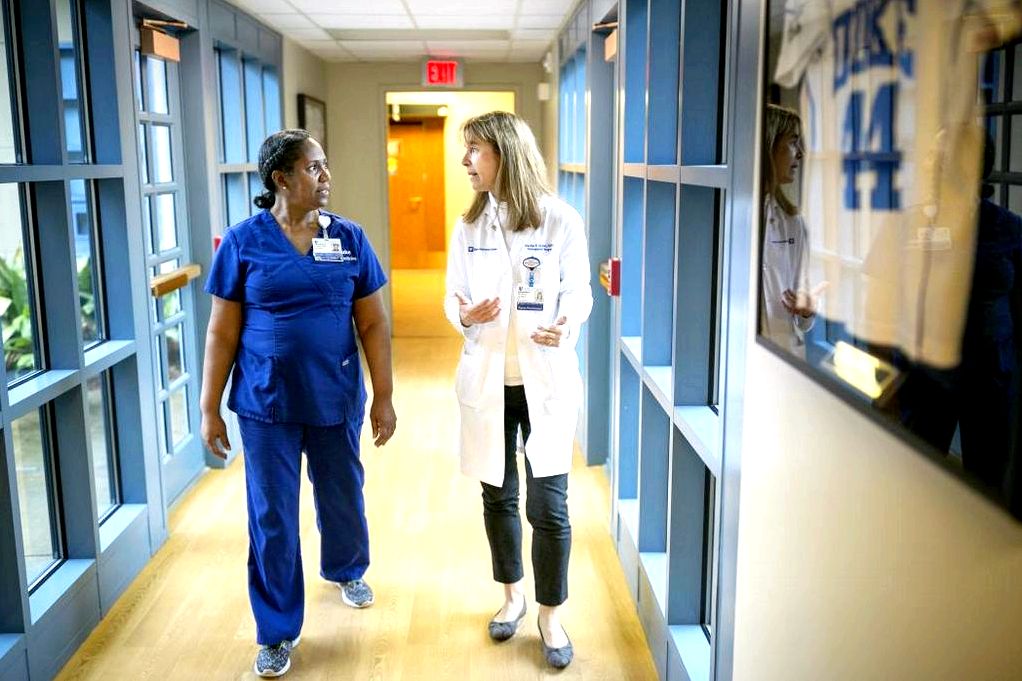Clinical research coordinator – dept of orthopaedics job with duke college
Contents
Job description
Med school:
Established in 1930, Duke College Med school may be the youngest from the nation’s top medical schools. Rated tenth among its peers, the college takes pride in becoming a comprehensive community of remarkable learners, investigators, clinicians, and staff where traditional barriers are low, interdisciplinary collaboration is accepted, and great ideas accelerate translation of fundamental scientific breakthroughs to enhance humanhealth in your area and round the globe.
Made up of 2,400 faculty physicians and researchers, the Duke College Med school combined with the Duke College School of Nursing and Duke College Health System create Duke Health. Duke Health is really a world-class healthcare network. Founded in 1998 to supply efficient, responsive care, the system provides a full network of health services and encompasses Duke College Hospital, Duke Regional Hospital, Duke Raleigh Hospital, Duke Primary Care, Private Diagnostic Clinic, Duke Home and Hospice, Duke Overall health, and multiple affiliations.
Duke’s Department of Orthopaedic Surgery comes with an immediate opening like a Clinical Research Coordinator found at 311 Trent Drive, Durham, N.C. 27710.
It is incorporated in the Orthopaedic Surgery CRU, and serves multiple Principal Investigators within various therapeutic areas (e.g. oncology, pediatrics). The projects vary from simple registry studies to complex oncology protocols. The research volume is high which position works individually (there aren’t any additional research staff people within this division aside from the PIs). The perfect candidate will have to be familiar with clinical research, in a position to function individually, understand when you should escalate issues, demonstrates versatility, professionalism, and time management ideasOrbusiness skills.
Operations:
– Screen participants for those studies individually. Maintain subject level documentation for those studies individually Schedule participants and conduct visits for those studies individually. Train others to conduct and document visits and protocol-specific testing/interviews.
– Help with development and follow procedures and documentation of study payment in timely fashion. Collect, prepare, process, ship, and keep inventory of research examples and train others during these tasks. Help with control over IP. Employ the needed system to handle, dispensing and documentation of IP for backed protocols. May result in figuring out the very best means of handling IP for Investigator-initiated protocols, or coordinating with investigational pharmacies as necessary. Maintain appropriate documentation. Track IP compliance in the protocol-and subject level. Individually maintain appropriate study-level documentation including regulatory binders, enrollment logs, patient registration within the system of record, etc.
– Employ ways of maintain recruitment and retention rates, and also to assist participants with individual needs. Evaluate ways to identify the process of recruitment and retention rates. Individually conducts and documents consent for participants in most studies, including individuals which are complex anywayOrscientifically relevant and/or require accessibility Electronic health record for documentation. May train or oversee others.
– Help with addressing and correcting findings from study monitoring and focus audit visits. Collect, prepare or process adverse event information individually Complete and submit AE Reports, based on institution and sponsor-specific prompt reporting needs (timelines and forms) individually.
-Have knowledge of ip legal rights, inventions patents, and technologies. As appropriate, understand rules associated with investigational products with sponsors. Coordinate with Duke core services for example Investigational Drug Service (IDS), Biobank, etc. Recognize the requirement for contracts (e.g., Material Transfer Contracts, Investigational New Drug Applications, etc.).
– Develop DUHS IRB documents for example consent forms, protocols, and ongoing reviews individually.
Ethics:
– Recognize when people are getting problems with this distinction. Make recommendations concerning how to improve communications to assist patients and staff comprehend the distinction.
– Train junior staff within the ethical conduct of research, and supply guidance in strategies accustomed to maintain safety. Develop documents associated with security and safety (e.g., RDSPs, COIs, DSMPs). – Coordinate efforts of exterior monitoring boards. Identify and also the explain the danger and advantages to a topic because these have to do with your medical trial
Data:
– Map protocol data flow. Predict regions of vulnerability for any protocol’s data flow plan. Determine places that data provenance might be compromised.
– Train others on study team being used of technologies and software, as well as in completing ECRFs. Help with the introduction of data collection documents to standardize process. Use EDC systems and enter data precisely.

– Recognize and report vulnerabilities associated with security of physical and electronic data. Suggest and implement methods to vulnerabilities associated with security of information and knowledge provenance Individually investigate the process of precision and completeness of information. Develop and run queries and reports. – Recognize trends associated with data quality and escalate as appropriate. Help with growth and development of and follow SOPs for data quality assurance. Assemble the required parties to make sure that all contracts have established yourself (DUA, DTA, etc.)
Science:
– Conduct literature reviews individually Identify various stakeholders (record, operational, etc.) to make sure sufficient design, implementation, and testing of study aims.
– Help with growth and development of research proposals or protocols. Summarize study results
Leadership:
Job descriptionMed school:
Established in 1930, Duke College Med school may be the youngest from the nation’s top medical schools. Rated tenth among its peers, the college takes pride in becoming a comprehensive community of remarkable learners, investigators, clinicians, and staff where traditional barriers are low, interdisciplinary collaboration is accepted, and great ideas accelerate translation of fundamental scientific breakthroughs to enhance humanhealth in your area and round the globe.
Made up of 2,400 faculty physicians and researchers, the Duke College Med school combined with the Duke College School of Nursing and Duke College Health System create Duke Health. Duke Health is really a world-class healthcare network. Founded in 1998 to supply efficient, responsive care, the system provides a full network of health services and encompasses Duke College Hospital, Duke Regional Hospital, Duke Raleigh Hospital, Duke Primary Care, Private Diagnostic Clinic, Duke Home and Hospice, Duke Overall health, and multiple affiliations.
Duke’s Department of Orthopaedic Surgery comes with an immediate opening like a Clinical Research Coordinator found at 311 Trent Drive, Durham, N.C. 27710.
It is incorporated in the Orthopaedic Surgery CRU, and serves multiple Principal Investigators within various therapeutic areas (e.g. oncology, pediatrics). The projects vary from simple registry studies to complex oncology protocols. The research volume is high which position works individually (there aren’t any additional research staff people within this division aside from the PIs). The perfect candidate will have to be familiar with clinical research, in a position to function individually, understand when you should escalate issues, demonstrates versatility, professionalism, and time management ideasOrbusiness skills.
Operations:
– Screen participants for those studies individually. Maintain subject level documentation for those studies individually Schedule participants and conduct visits for those studies individually. Train others to conduct and document visits and protocol-specific testing/interviews.
– Help with development and follow procedures and documentation of study payment in timely fashion. Collect, prepare, process, ship, and keep inventory of research examples and train others during these tasks. Help with control over IP. Employ the needed system to handle, dispensing and documentation of IP for backed protocols. May result in figuring out the very best means of handling IP for Investigator-initiated protocols, or coordinating with investigational pharmacies as necessary. Maintain appropriate documentation. Track IP compliance in the protocol-and subject level. Individually maintain appropriate study-level documentation including regulatory binders, enrollment logs, patient registration within the system of record, etc.
– Employ ways of maintain recruitment and retention rates, and also to assist participants with individual needs. Evaluate ways to identify the process of recruitment and retention rates. Individually conducts and documents consent for participants in most studies, including individuals which are complex anywayOrscientifically relevant and/or require accessibility Electronic health record for documentation. May train or oversee others.
– Help with addressing and correcting findings from study monitoring and focus audit visits. Collect, prepare or process adverse event information individually Complete and submit AE Reports, based on institution and sponsor-specific prompt reporting needs (timelines and forms) individually.
-Have knowledge of ip legal rights, inventions patents, and technologies. As appropriate, understand rules associated with investigational products with sponsors. Coordinate with Duke core services for example Investigational Drug Service (IDS), Biobank, etc. Recognize the requirement for contracts (e.g., Material Transfer Contracts, Investigational New Drug Applications, etc.).
– Develop DUHS IRB documents for example consent forms, protocols, and ongoing reviews individually.
Ethics:
– Recognize when people are getting problems with this distinction. Make recommendations concerning how to improve communications to assist patients and staff comprehend the distinction.
– Train junior staff within the ethical conduct of research, and supply guidance in strategies accustomed to maintain safety. Develop documents associated with security and safety (e.g., RDSPs, COIs, DSMPs). – Coordinate efforts of exterior monitoring boards. Identify and also the explain the danger and advantages to a topic because these have to do with your medical trial
Data:
– Map protocol data flow. Predict regions of vulnerability for any protocol’s data flow plan. Determine places that data provenance might be compromised.
– Train others on study team being used of technologies and software, as well as in completing ECRFs. Help with the introduction of data collection documents to standardize process. Use EDC systems and enter data precisely.

– Recognize and report vulnerabilities associated with security of physical and electronic data. Suggest and implement methods to vulnerabilities associated with security of information and knowledge provenance Individually investigate the process of precision and completeness of information. Develop and run queries and reports. – Recognize trends associated with data quality and escalate as appropriate. Help with growth and development of and follow SOPs for data quality assurance. Assemble the required parties to make sure that all contracts have established yourself (DUA, DTA, etc.)
Science:
– Conduct literature reviews individually Identify various stakeholders (record, operational, etc.) to make sure sufficient design, implementation, and testing of study aims.
– Help with growth and development of research proposals or protocols. Summarize study results
Leadership:
– Encourage and support colleagues in finishing project work. Assist research colleagues in identifying efficiencies and improving process.
Is mentor with other staff. Recognize and rehearse the professional guidelines and code of ethics associated with the conduct of clinical research.
– Maintain training needs and develop methods to proactively ensure study team members’ compliance with training needs. Evaluate the requirement for cultural diversity and cultural competency within the design and conduct of clinical research. Make recommendations to investigative team.
Study and Management:
– Collect information to find out appropriate practicality, recruitment and retention strategies. Ensure participant care expenses have appropriate financial routing on time. Monitor financial study milestones and report appropriately.
– Coordinate with financial teams, PRMO, etc. and take part in budget development as appropriate. Help with study budgets. Maintain study’s compliance with institutional needs along with other policies (e.g., NIH Public Access policy, ct.gov, Research Data Security Plans, Social Networking policy, etc.). – Oversee upkeep of Delegation of Authority Logs and training of key personnel on study specific responsibilities. Be a part of site initiation and closeout conferences individually
– Develop protocol-specific systems and documents including process flows, training manuals, standard operating procedures, and situation report forms.Coordinate operational plans for multiple scientific studies. Be a part of or lead closeout and document storage activities
Communication:
– Do something when communication has stalled with sites, CROs, sponsors. Get ready for and lead team conferences. Recognize when others have to be introduced in to the conversation and escalate appropriately. – Expand around the ideas of peers or team people. Take an energetic role in including others in decision-making.
Minimum QualificationsEducation
Completing an Associate’s degree
Experience
Work requires no less than 2 yrs of relevant research experience. A Bachelor’s degree may replacement for 24 months needed experience.
Duke is definitely an Affirmative Action/Equal Chance Employer dedicated to supplying employment chance without regard for an individual’s age, color, disability, gender, gender expression, gender identity, genetic information, national origin, race, religion, sex, sexual orientation, or veteran status.

Duke aspires to produce a community built on collaboration, innovation, creativeness, and belonging. Our collective success depends upon the robust exchange of ideas—an exchange that’s best once the wealthy diversity in our perspectives, backgrounds, and encounters flourishes. To do this exchange, it is necessary that all people from the community feel secure and welcome, the contributions of folks are respected, which all voices are heard. All people in our community possess a responsibility to uphold these values.
Essential Physical Job Functions: Certain jobs at Duke College and Duke College Health System can include essentialjob functions that need specific physical and/or mental abilities. More information and provision for demands for affordable accommodation is going to be supplied by each hiring department.
Share this task together with your network:
Resourse: https://careers.insidehighered.com/job/1892848/clinical-research-coordinator-dept-of-orthopaedics/
